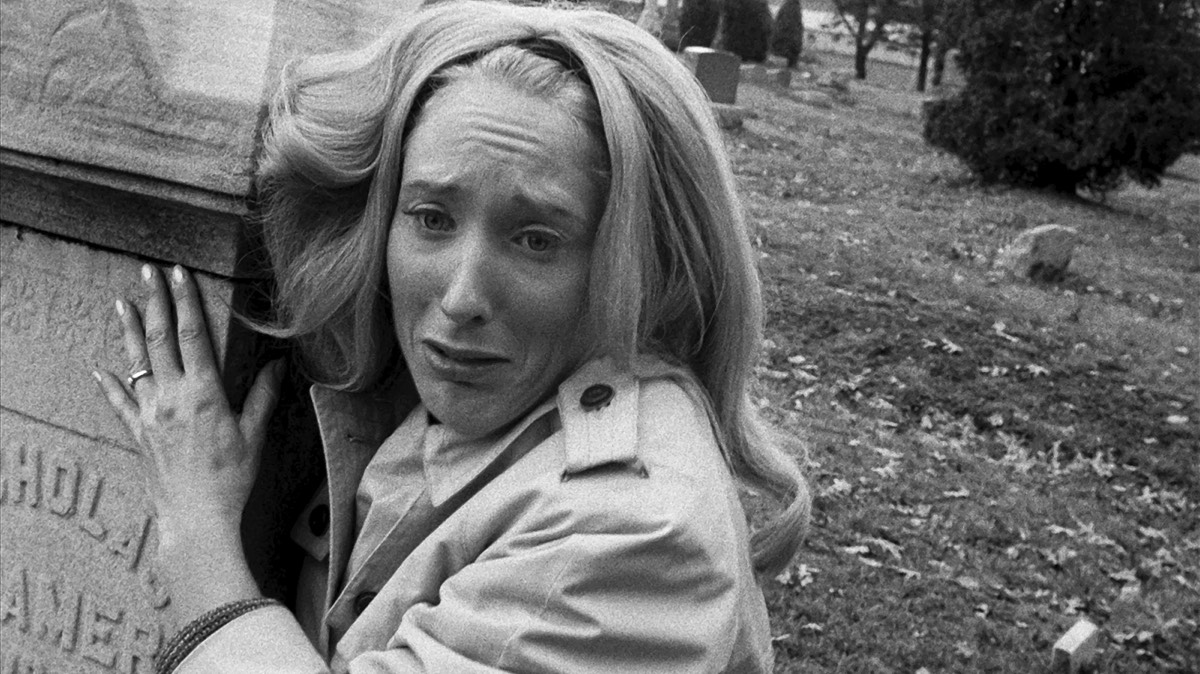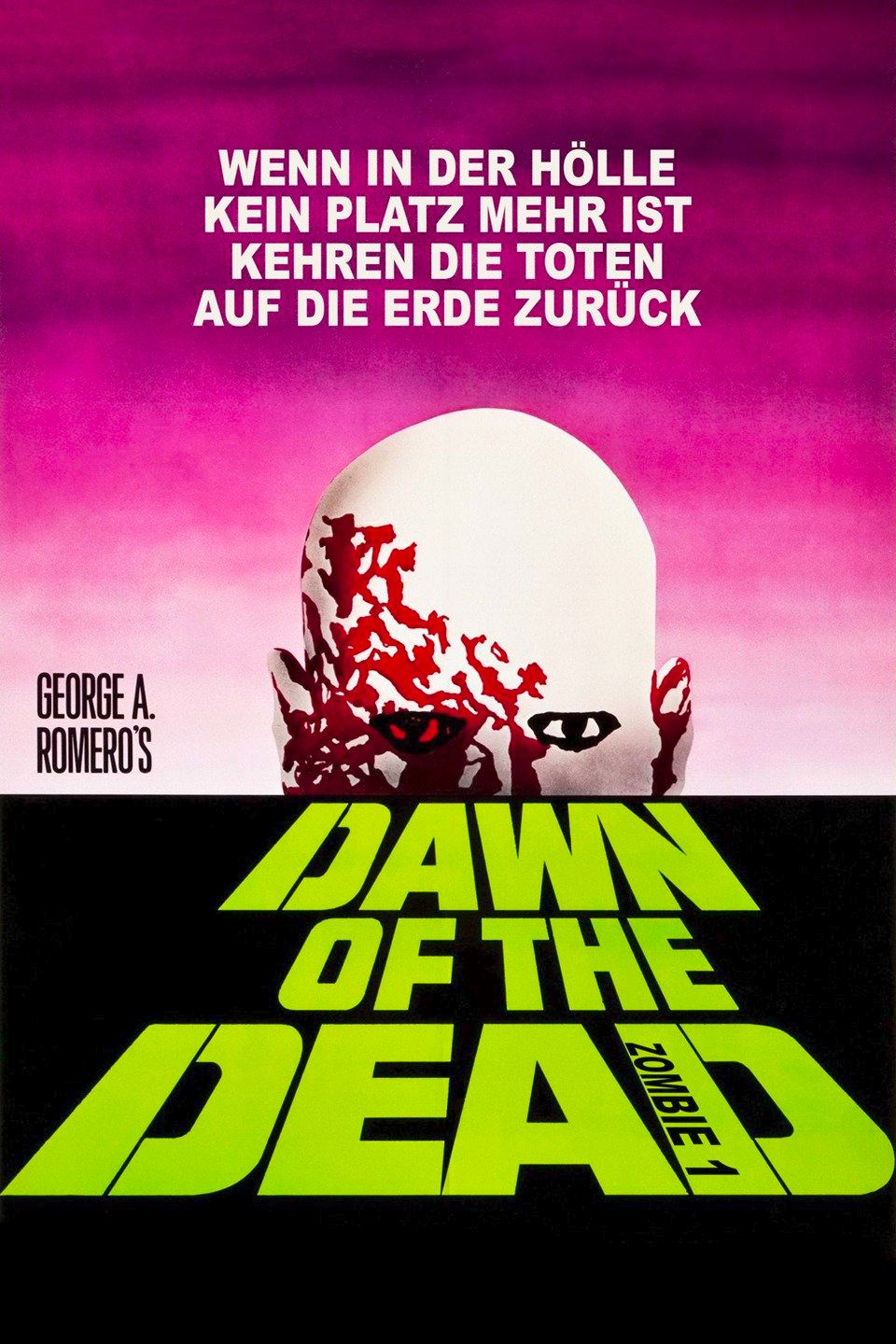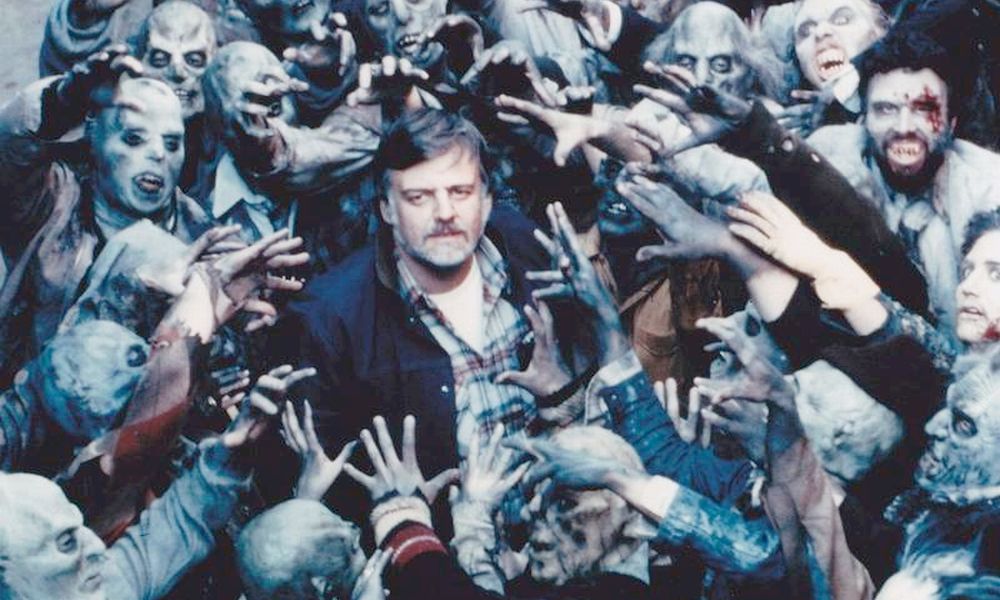"Although an erratic talent, George Andrew Romero remains important for his virtually single-handed development of the horror film from a form where menace was suggested and shadowy to a newly visceral genre in which gore and violence are largely explicit." - Geoff Andrew (The Film Handbook, 1989)
George A. Romero
Director / Screenwriter / Editor
(1940-2017) Born February 4, The Bronx, New York City, New York, USA
Top 250 Directors
(1940-2017) Born February 4, The Bronx, New York City, New York, USA
Top 250 Directors
Key Production Country: USA
Key Genres: Horror, Drama, Creature Film, Psychological Drama, Natural Horror, Supernatural Horror, Thriller
Key Collaborators: Richard P. Rubinstein (Producer), Michael Gornick (Cinematographer), Pasquale Buba (Editor), Cletus Anderson (Production Designer), Christine Forrest (Character Actress), Tom Savini (Character Actor), John Amplas (Character Actor), Michael Doherty (Editor), Raymond Laine (Leading Actor), Russell Streiner (Producer), Peter Grunwald (Producer), Adam Swica (Cinematographer)
Key Genres: Horror, Drama, Creature Film, Psychological Drama, Natural Horror, Supernatural Horror, Thriller
Key Collaborators: Richard P. Rubinstein (Producer), Michael Gornick (Cinematographer), Pasquale Buba (Editor), Cletus Anderson (Production Designer), Christine Forrest (Character Actress), Tom Savini (Character Actor), John Amplas (Character Actor), Michael Doherty (Editor), Raymond Laine (Leading Actor), Russell Streiner (Producer), Peter Grunwald (Producer), Adam Swica (Cinematographer)
"As they say in all the corniest horror movies, George Romero must have been a strange child. After all, at the age of 14 he was arrested for throwing a burning dummy off a roof whilst filming his first amateur movie, The Man from the Meteor… With Night of the Living Dead his unusual preoccupations came to the fore, and branded him a master of horror with a fascination for depicting the bloody demise of flesh-eating zombies." - The Illustrated Who's Who of the Cinema, 1983
"As with Francis Ford Coppola, George Romero’s reputation—his position as a major American filmmaker—rests ultimately upon a trilogy. Without the three Living Dead films his work would merit little more than a footnote. The other films can be dispensed with briefly. The interest of the early ones lies primarily in their relation to the trilogy. Jack’s Wife reveals an early interest in feminism that would be fully realized in Day of the Dead; The Crazies takes up certain themes of Night of the Living Dead and anticipates the later concern with militarism. The best of these films, Martin, stands somewhat to one side, though its insights into alienation and its consequences are consistent with the trilogy’s themes…The Living Dead trilogy, on the other hand, constitutes, taken in its entirety, one of the major achievements of American cinema, an extraordinary feat of imagination and audacity carried through with exemplary courage and conviction." - Robin Wood (International Dictionary of Films and Filmmakers, 2000)

Night of the Living Dead (1968)
"Director of exploitation pictures that are part of the late night ‘cult circuit’ in the States. Lurid, loathsome and repugnant horror movies, full of slavering zombies, ghouls and vampires." - Ronald Bergan (A-Z of Movie Directors, 1983)
"Increasingly, Romero can be seen as a brilliant satirist and I think his zombies aren’t so much like vampires or werewolves or the Frankenstein monster. They are the heirs of Jonathan Swift’s Struldbrugs in Gulliver’s Travels, the grotesque human beings who cannot die, who are immortal, but without eternal youth, and just get older and more ravaged, and yet ever more malign and greedy in their unending old age. Both Swift and Romero had a brilliantly sharp and tactless sense of the hubris and arrogance in their own polite societies." - Peter Bradshaw (The Guardian, 2017)
"A director of mostly low-budget horror films who burst on the filmmaking scene in 1968 with his shockingly violent, no-holds-barred Night of the Living Dead. Based in Pittsburgh, Pennsylvania, Romero has shot most of his films in and around his home state, relishing his reputation as a movie maverick. Though few of his films have reached a wide audience, the director has had a significant impact on the movie industry. His debut film has often been cited as the spur that led to the MPAA rating system." - The Encyclopedia of Hollywood, 2004
"Rather than move to the dead end streets of Hollywood, or even New York, Romero decided to remain in Pittsburgh and continued to make films on the edge of the mainstream, often drawing on local talent, including actors from prestigious Carnegie-Mellon University… Romero tries to avoid any serious discussion of the art of his films, preferring to keep interviews light-hearted: “Just because I’m showing somebody being disembowelled doesn’t mean that I have to get heavy and put a message behind it!" - Steven Paul Davies (A-Z of Cult Films and Film-Makers, 2001)
"One of America's most effective directors of chillers and horror films from 1968 to 1988, Romero has dissipated his talents too much. Still, his Night of the Living Dead, made in black and white, remains one of the rare examples of true horror in recent Hollywood history." - David Quinlan (Quinlan's Film Directors, 1999)
"Romero's first feature, Night of the Living Dead (1968), remains a landmark of the modern horror film... Two sequels ensued, the equally gripping Dawn of the Dead (1978) and the disappointing Day of the Dead (1985)... Although Romero's work has been uneven and at its best erratic, the influence of his blood-and-gore approach to horror can be detected in the films of such directors as Brian De Palma, John Carpenter, David Cronenberg, and Wes Craven." - (The MacMillan International Film Encyclopedia, 1994)
"I don't try to answer any questions or preach. My personality and my opinions come through in the satire of the films, but I think of them as a snapshot of the time. I have this device, or conceit, where something happens in the world and I can say, "Ooo, I'll talk about that, and I can throw zombies in it! And get it made!" You know, it's kind of my ticket to ride." - George A. Romero
Selected Filmography
{{row.titlelong}}
GF Greatest Films ranking (★ Top 1000 ● Top 2500)
21C 21st Century ranking (☆ Top 1000)
T TSPDT R Jonathan Rosenbaum
21C 21st Century ranking (☆ Top 1000)
T TSPDT R Jonathan Rosenbaum
George A. Romero / Favourite Films
The Brothers Karamazov (1958) Richard Brooks, Casablanca (1942) Michael Curtiz, Dr. Strangelove or: How I Learned to Stop Worrying and Love the Bomb (1964) Stanley Kubrick, High Noon (1952) Fred Zinnemann, King Solomon's Mines (1950) Compton Bennett & Andrew Marton, North by Northwest (1959) Alfred Hitchcock, The Quiet Man (1952) John Ford, Repulsion (1965) Roman Polanski, The Tales of Hoffmann (1951) Michael Powell & Emeric Pressburger, Touch of Evil (1958) Orson Welles.
Source: Sight & Sound (2002)
The Brothers Karamazov (1958) Richard Brooks, Casablanca (1942) Michael Curtiz, Dr. Strangelove or: How I Learned to Stop Worrying and Love the Bomb (1964) Stanley Kubrick, High Noon (1952) Fred Zinnemann, King Solomon's Mines (1950) Compton Bennett & Andrew Marton, North by Northwest (1959) Alfred Hitchcock, The Quiet Man (1952) John Ford, Repulsion (1965) Roman Polanski, The Tales of Hoffmann (1951) Michael Powell & Emeric Pressburger, Touch of Evil (1958) Orson Welles.
Source: Sight & Sound (2002)
George A. Romero / Fan Club
Edgar Wright, Jeffrey M. Anderson, Alexandra Seitz, Filipe Furtado, Kim Newman, Bruce LaBruce, Richard Kuipers, Joe Bob Briggs, Guilherme Martins, Erik Harelstad, Volker Hummel, Joe Kane.
Edgar Wright, Jeffrey M. Anderson, Alexandra Seitz, Filipe Furtado, Kim Newman, Bruce LaBruce, Richard Kuipers, Joe Bob Briggs, Guilherme Martins, Erik Harelstad, Volker Hummel, Joe Kane.
"Fan Club"
These film critics/filmmakers have, on multiple occasions, selected this director’s work within film ballots/lists that they have submitted.
These film critics/filmmakers have, on multiple occasions, selected this director’s work within film ballots/lists that they have submitted.


